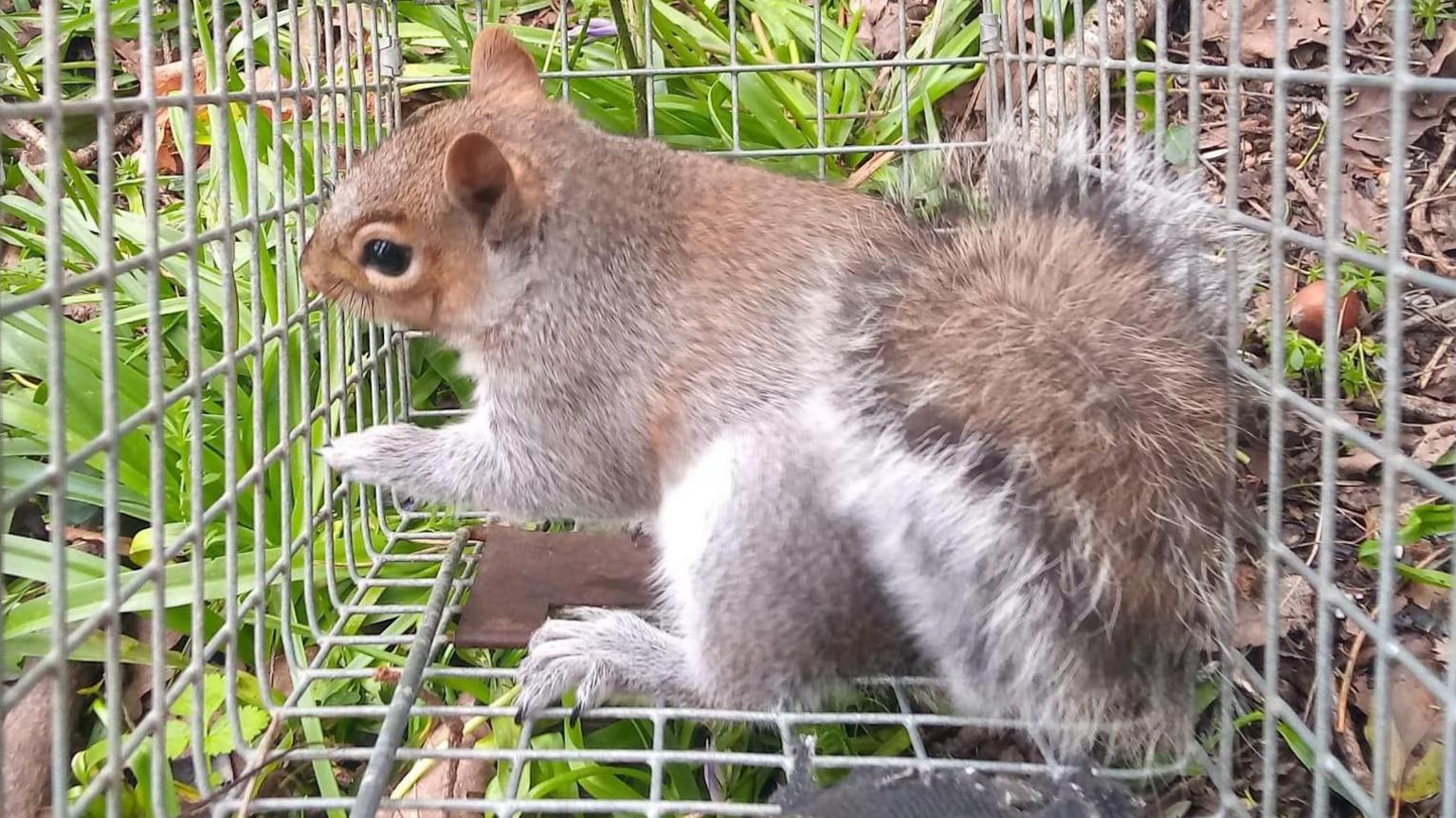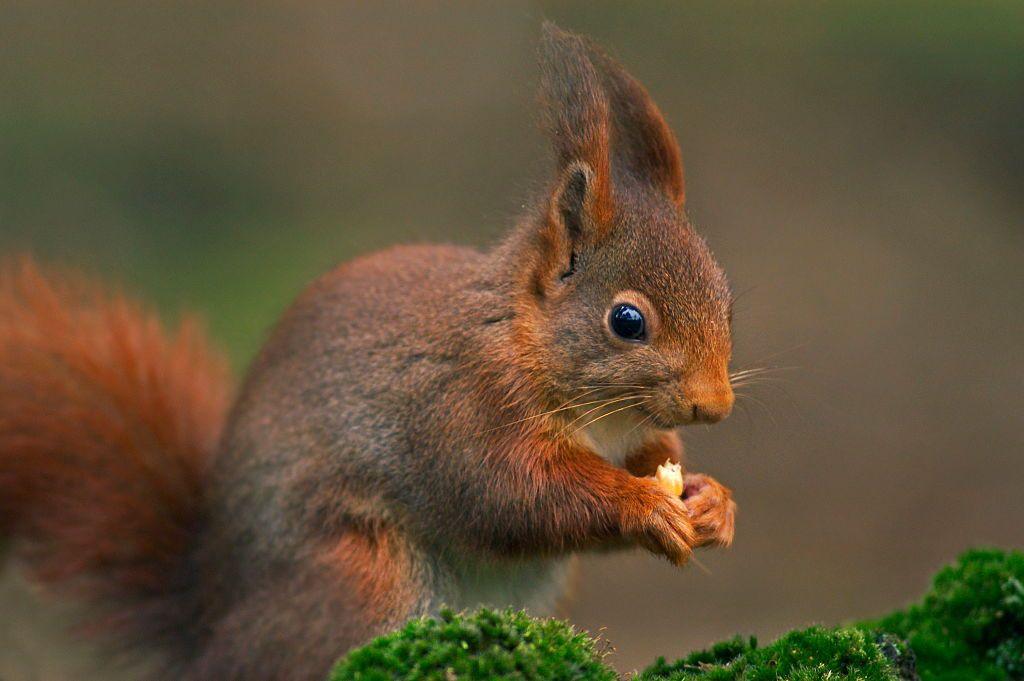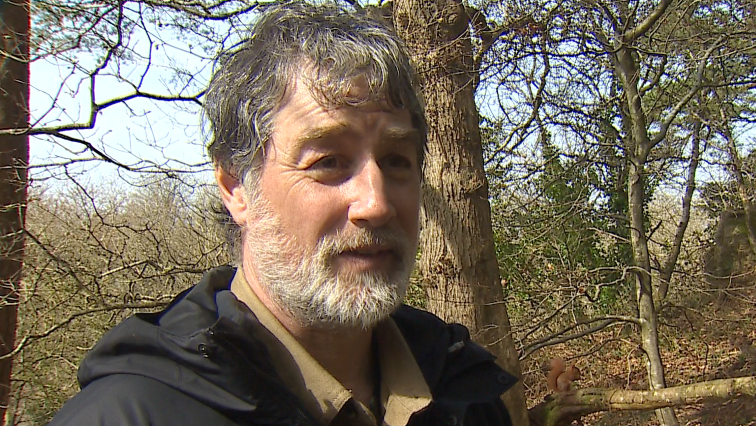Grey squirrel may have taken train to home of reds

The grey squirrel was humanely captured after it was spotted on Anglesey in mid-February.
- Published
A grey squirrel which may have ridden a train to the home of Wales' largest red squirrel population has been captured, following fears it could have killed off the local species.
The animal was spotted by a member of the public on Anglesey in mid-February who reported it to Red Squirrels Trust Wales after weeks on the loose.
Dr Craig Shuttleworth said the greys had found a number of "Mission Impossible"-style ways of getting to the island - with one even spotted swimming across the Menai Strait.
He spent weeks trying to track down the creature, setting up wildlife cameras and traps.

Red squirrels often have amounts of grey colouring and so are easily misidentified
But the grey was eventually captured on Thursday 4 April.
“They are very invasive, being able to swim across the Menai Strait, they can cross in vehicles, with the one on Holyhead I wondered if it had crossed by train,” Dr Shuttleworth said.
He added that the traps were humane and monitored regularly.
Grey squirrels are dangerous to the red squirrel population on the island, as they can carry squirrelpox.
It affects only red squirrels, is highly infectious and usually fatal.
While red squirrels are smaller compared to the greys, red squirrels often have amounts of grey colouring and so are easily misidentified.

Dr Craig Shuttleworth has urged the public to report any squirrel they see, even if they aren't certain it is a grey
Dr Shuttleworth said the squirrel population was still recovering from a pox outbreak a few years ago, and that the island and the conservation effort “lived with the risk”.
He said that the grey squirrel had since been euthanised as a non-native invasive species.
It is illegal to release them back into the wild, and was now going to be tested to see if it carried the pox.
The charity had faced criticism after putting a picture on social media of the captured grey squirrel in a trap while it was still alive.
He said it had been put up to show people the difference between a grey and a red, and they had no choice but to kill them once captured as it was the way to safeguard the red population.
Dr Shuttleworth said that despite the constant monitoring on the island, the squirrels were finding a number of unusual ways to cross into it.
“We never demonise grey squirrels…they are fascinating,” he said.
“It is like Mission Impossible, whether they are swimming across large bodies of water, or boarding a train, nothing surprises me anymore.
Greys eat the same food as the reds, and so are threatening the population, even if they did not carry the virus.
“The red squirrels bring a lot of joy to people…they are so rare…people feed them and take photographs of them.”
Dr Shuttleworth urged the public to report any sign of a grey squirrel on the island, even if they were not sure if it was a red or a grey.